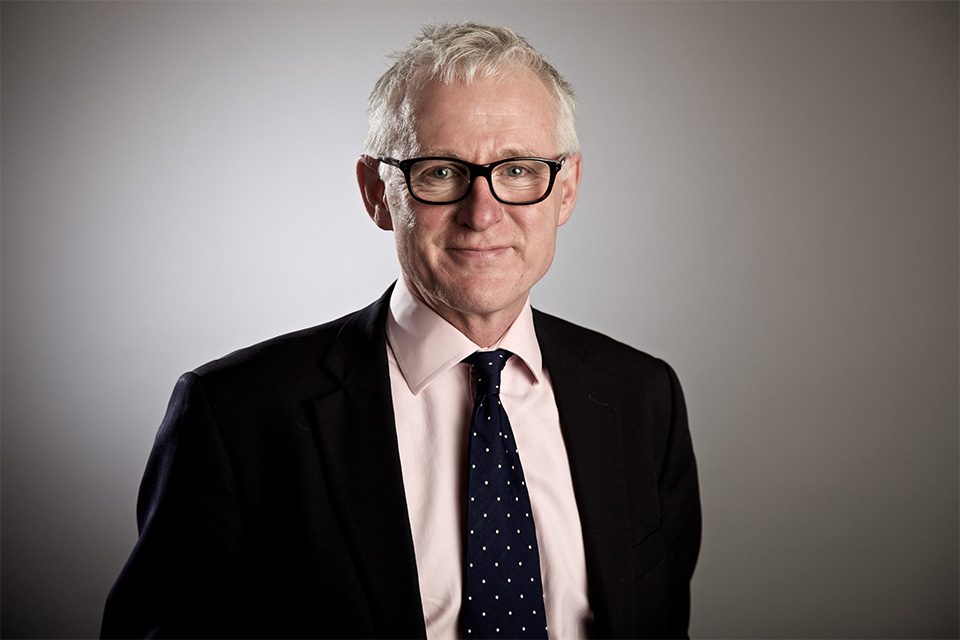Winterbourne View: 1 year on
Norman Lamb writes about getting the right foundations in place to deliver person-centred care for vulnerable people.

The inhumanity is the hardest to understand – or forgive. The culture of neglect at Winterbourne View hospital, where residents were routinely abused, both mentally and physically, is as distressing to acknowledge now as it was more than 2 years ago, when these serious failings first came to light.
Then, as now, it was - and remains - our moral duty to do whatever it takes to eliminate this fundamental disregard for a person’s health, safety and wellbeing. Like my predecessors, I have made this commitment on several occasions since taking responsibility for the Department of Health’s Winterbourne View programme last September.
This report, 1 year on from ‘Transforming care: A national response to Winterbourne View Hospital’, shows how all of us working in or with the health and care system have gone about discharging that moral duty. It presents an opportunity, not only to reveal the changes made in process and governance, but also the changes yet to come, as we strive to enhance protection for some of society’s most vulnerable citizens.
If you take the time to read this report in full – and I urge you to do so – you would be right to observe it devotes many pages to legislation, consultation, data collection and other matters of process and protocol. On the surface, this seems some way removed from the aspiration of person-centred care, but this is about getting the right foundations in place to deliver that care. We should not forget we have already taken some very important steps towards achieving this through the reviews of people’s care that have taken place over the last year.
And it is with people that our important work begins – the 48 former residents of Winterbourne View, so badly let down by our care and support system. Indeed, this report is headlined by the powerful and affecting story of one former resident, Simon. Readers should carry this story in their heads throughout, because his experiences and those of his family are what this is all about. I am sad to say, 1 former resident has since died, but the care of the remaining 47 continues to be observed by NHS England. We know that in June this year 24 were in residential care homes, 10 in supported living accommodation and 13 in NHS inpatient settings. Their wellbeing – and the wellbeing of everyone they represent – is dependent on knowing where, when and how they are being cared for.
In addition, the Learning Disability Census, a good example of joint working across the new health and care system, between the Health and Social Care Information Centre, Care Quality Commission, Department of Health, Public Health England and NHS England, has been completed. It gives us the most comprehensive picture yet of inpatient service provision, hospital placements and lengths of stay in learning disability services.
This is not just about collecting data and information but what actions organisations take once they have it. NHS England has established an Enhanced Quality Assurance Programme (EQAP) with the specific role of making sure people are safe and monitoring the quality of care reviews. They will be looking most closely at the former Winterbourne View residents and sampling quality more widely. EQAP will seek the firmest assurances that patients have clear care plans and are receiving the support they need and deserve.
As you’d expect, this, and future work, is conducted in partnership with a wide range of individuals and organisations from across the health and care sector. Such a broad church of views and interests cannot be permitted to slow the pace of change. Indeed, we need to pick up that pace if we are to make sure no patient finds themselves in inappropriate care settings beyond June 2014. I fully expect and encourage the people that matter most, the self-advocates, family carers and the voluntary sector organisations representing them to make sure we not only work with them but that we do not delay unnecessarily the improvements and transformation in services, care and support we all want to see.
I make no apologies for this impatience. It would be an insult to the experience of those who suffered at Winterbourne View - and to all those who have suffered at the hands of the cruel and the cowardly – if we were to fail.
More broadly, the public deserves the candour, transparency and accountability they were denied before. They want peace of mind their loved ones are being treated with dignity and respect at all times and they deserve that reassurance now. Dishonesty – like failure – is not an option.